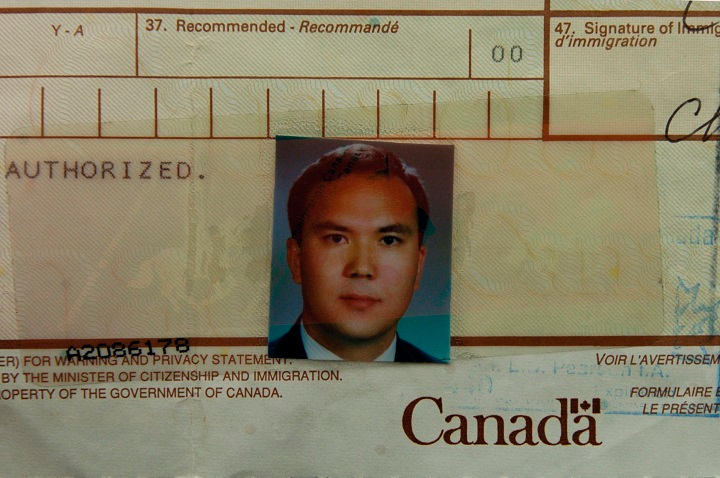Human Rights Violations Committed Against Huseyin
What happened to Huseyin? What are the human rights violations being committed against Huseyin? What are China’s unfulfilled committments towards Huseyin and Canada?
What Happened To Huseyin Celil?
In March 2006, Huseyin and his family traveled to Uzbekistan to visit family. This was the last time Huseyin’s wife, Kamila and their boys would see Huseyin.
After going to a nearby passport office to extend their family’s stay, the Uzbeki police arrested Huseyin claiming they were apprehending a “fugitive” on behalf of the Chinese government. His short time (6 weeks) in Uzbekistan under arrest could have been helpful for Canada to block this handover. Unfortunately, it was not quick or efficient enough and he was handed over to China. Huseyin was 38 years old at the time of arrest.
He was wearing a dark suit, with a blue shirt. Nothing special, just a suit like any other man in the city. But I’ve dreamed of him many times. And when I do, I see him in those clothes.
Since China does not recognize Huseyin’s Canadian citizenship, they did not give any access or information to Canadian officials. Huseyin was held in secrecy and not given any access to family or a lawyer. Furthermore, the Chinese authorities threatened and forced him to sign a confession. Hence his trial was unfair, unjust and unlawful. On April 19, 2006, Huseyin was handed a life sentence on heinous terrorism charges. Shortly after Huseyin was arrested, family members were told he had been accused of the assassination of a Chinese official in Kyrgyzstan in March 2000, charges for which he would likely face the death sentence. As for the stunning accusation of political murder, the Chinese have not named the assassinated official or disclosed any of the evidence of his death. Huseyin’s family has offered documentary proof he was in Istanbul at the alleged time of the killing – including pictures of a meeting he had that day with Turkish government officials.

A decade or so later, this sentence was reduced to approximately 18-20 years since he took part in a ‘re-education’ program and signed a confession. This means that Huseyin will serve a total of approximately 32 years in prison and will be free when he is 68 years old. During Huseyin’s time in detainment, his mother and sister visited him once or twice a year until things changed very quickly.
When China ramped up its anti-Uyghur developments in 2017 with internment camps and crackdown on the general Uyghur population, Kamila stopped receiving information on Huseyin. It is with this uncertainty that Huseyin’s case is viewed upon. We must assume that he is alive and ensure that the Canadian government does its best to find and bring Huseyin back home.
Human Rights Violations Committed Against Huseyin
Huseyin has endured many human rights violations:
- no access to a lawyer, his family, or Canadian officials
- torture
- forced confessions
- denied his Canadian citizenship
- charged on heinous charges: he was detained and imprisoned because he is a Uyghur
- solitary confinement
- re-education program (negative psychological effects)
- freedom of belief, thought, expression, and religion have been violated
For a Canadian citizen to somehow be captured, detained, tortured, and have no access to the Canadian government, for that person to be facing those sorts of human rights abuses is a particular affront to Canadians and the government of Canada.
China’s Unfulfilled Commitments
Vienna Convention on Consular Relations
China endorsed the Vienna Convention on Consular Relations of 1963 in 1979. Under Article 36, consular officials “have the right to visit a national . . . who is in prison, custody or detention, to converse and correspond with him and to arrange for his legal representation.”
Consular Agreement Between the Government of CANADA and the Government of the PEOPLE’S REPUBLIC OF CHINA
China signed a consular agreement with Canada that came into force in 1999. Under Article 8, “a consular officer shall be entitled to visit a national . . . who is under detention, arrest or deprived of freedom in any other means.”
